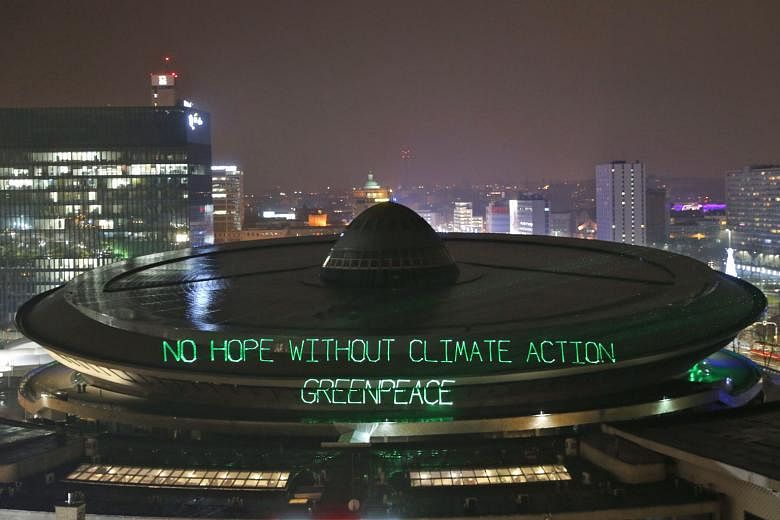To take note of, or to welcome. The difference might not sound like much but at United Nations climate talks in Poland, it sums up the deep divisions over how to include a recent major report by the UN climate panel that laid out the startling impacts of global warming of 1.5 deg C versus 2 deg C.
For many at the climate talks, the findings should not be dismissed lightly, which is how Saudi Arabia, the United States, Russia and Kuwait wanted the report treated.
The UN report is a wake-up call from the world's scientists that must be heeded, said Mr Alden Meyer, director of strategy and policy for the Union of Concerned Scientists, yesterday.
"It is a declaration of a planetary emergency that governments must respond to with profound action," said Mr Meyer during a press conference at COP24, the ongoing UN climate change talks in Katowice, Poland.
Pressure continues to be piled on Saudi Arabia, the US, Russia and Kuwait, which want to take a more passive stance on how the October report by the Intergovernmental Panel on Climate Change (IPCC) should be reflected in ongoing climate negotiations in Poland.
The four nations had during Saturday's plenary session refused to back a proposal from the almost 200 other countries, including Singapore, to "welcome" the report, insisting it should only be "noted".
Said Mr Meyer: "The wordplay is less important here than the political split this indicates, between the countries that clearly don't want to see greater ambition in this process and the majority that do."
At a separate event yesterday, Mr Lou Leonard, senior vice-president for climate change and energy at the World Wildlife Fund-United States, urged nations not to let such developments derail global ambitions.
During an event organised by the Climate Action Network - a global network of non-governmental groups, Mr Leonard said: "With the United States abdicating any role of leadership in these talks, we look again to other sources of leadership this week from other ministers, to foster discussions on ambition and rebuild the coalitions that we saw in the run-up to Paris."
The IPCC report was prepared at the invitation of parties at the end of the landmark Paris climate talks in 2015. The report cited over 6,000 scientific papers and found that any warming exceeding 1.5 deg C could condemn economies and ecosystems to deadlier weather extremes, habitat loss, falling crop yields and ever higher sea levels.
Dr Rachel Cleetus, policy director of the climate and energy programme at the Union of Concerned Scientists, told The Straits Times that any delays in efforts to reduce emissions could be costly - in terms of having stranded fossil fuel assets, retrofitting fossil fuel power plants, and investing in unproven carbon capture technology.
"We have to find ways of retrofitting (fossil fuel plants) with carbon capture and storage facilities, which is very expensive. We should instead be building infrastructure that will allow more renewables integration. We are spending on infrastructure now, but on the wrong kind, and that's a very expensive choice."

